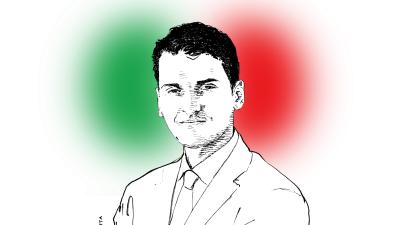How the EU Commission wants to erase politics from social networks
This paper has first been published in Italian by: https://www.ilgiornale.it/news/politica/cos-commissione-ue-vuol-cancellare-politica-dai-social-2110927.html
Here we go again: The European Union is preparing to implement a new regulation that, behind the objective of ensuring greater transparency, actually strikes at freedom of expression. It is the “Regulation on the transparency and targeting of political advertising” within the “European Democracy Action Plan”. If the declared aim is to protect the electoral process from foreign influences and to ensure the smooth running of elections, the amendments proposed by the Council and the Imco Commission of the European Parliament could restrict freedom of speech.
To date, there is no EU-wide definition of the concept of political advertising, and in the new regulation, a message "which is capable of influencing voting behaviour or the outcome of an election, referendum, legislative or regulatory process" is understood as such.
According to Article 12 of the text, digital platforms may not exploit users' sensitive personal data to recommend political advertising unless consent has been given. However, this prohibition is extended not only to advertisements in the strict sense, but to any content that could influence an election, be it local, national, European or even intra-party. This broadening of the definition of political advertising would also include content organic to social media regardless of whether it is paid content.
In addition to actual advertising, any content related to major political debates such as immigration, climate change or even energy prices would thus be affected. The impact would be enormous, let's say for example a newspaper article expressing an opinion on a topical issue is shared on a social network, it could fall under the EU regulation and thus be banned from publication. The task of establishing whether or not a piece of content is political in nature would be up to the platforms with the risk that, in order to avoid sanctions, they might avoid showing any political issues on their channels a priori - with considerable consequences for the now very digitally oriented democratic debate.
In addition to the amendments to the regulation proposed by the Council, the European Parliament's “Committee on the Internal Market and Consumer Protection” (IMCO) also approved a text that raises concerns about the circulation of political content on the internet.
While users will be required to fill in a self-declaration when uploading any advertisement, platforms will instead have to clearly indicate to all users which advertisements are actually electioneering, provide information about the advertisement in question, and verify the accuracy of the information provided by the advertiser.
But this is not the end of the story: in both the text proposed by the Council and the one voted in IMCO, any user can report a content as not complying with the regulation, and platforms will have 24/48 hours to check its appropriateness - and, given the penalties foreseen and the insufficient time to check, the risk is that even legitimate content will be removed. Legitimate advertisements could then be reported with the aim of having them removed and targeting a specific political figure, thus opening the way to abuse with the paradox of using the tool precisely for political purposes.
The text approved by the IMCO Commission will be debated and voted on in plenary at the European Parliament tomorrow and Thursday in the hope that it will be possible to change a regulation that, as it is conceived, represents a new element in the European Union's dirigiste drift.
Read also
The problem of mass immigration to Europe - a critical analysis
The growing migratory pressure at Europe's borders has shown clearly that, despite the already obvious problems involved, the migratory inflow is not being tackled with the necessary determination by the EU institutions. Yet irregular immigration is a problem that does not concern a single country but the whole of Europe.
Francesco Giubilei
Chantal Delsol: France is a country of riots. And for specific reasons.
Every uprising has its own motives, linked to the events of the day.
Francesco Giubilei
"Never so many immigrants!" Italy's cry for help
A flow of immigrants never seen before. Every day, hundreds and hundreds of arrivals on Italian coasts are bringing reception workers to their knees.
Francesco Giubilei
Jacopo Ugolini
America’s Cultural Revolution: How the Radical Left Conquered Everything
Revolutions are not always violent and bloody. They can also be carried out in seemingly softer ways but still being equally pervasive and destructive of the norms and society they are intended to change. This is the case with cultural revolutions, where actions are taken in schools, universities, and the media and in people's minds without resorting to the use of force.












Comments (0)